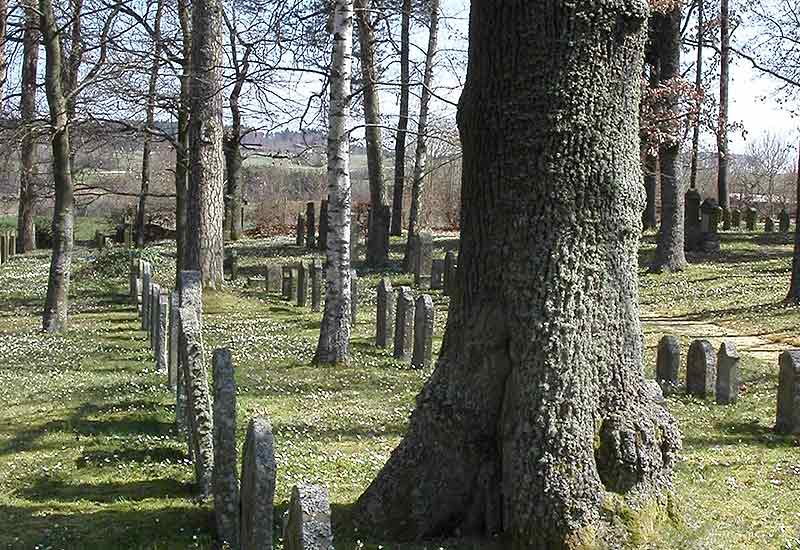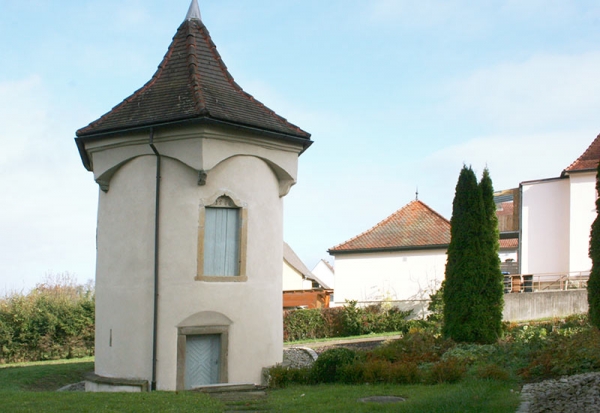The first Jewish name known to be recorded in Nordstetten is that of Auerbacher which dates back to the year 1629. There were 18 Jewish families in the village in 1772. Keller von Schleitheim, ruler of the village, allowed Jews to settle there. In the 18th and 19th centuries almost all the houses of the Jewish families were still situated near the castle. In 1767, a synagogue was built in the main street and in 1822, the first Israelite elementary school in Württemberg was established in Nordstetten. Under the direction of its teacher, Bernhard Frankfurter, it gained an outstanding reputation in the whole State. The ritual bath was located in an old fortified tower near the castle.
In 1846, the Jewish population of Nordstetten reached its highest level with 352 members. From then on it decreased continually due to migration to the cities and emigration to America. The synagogue was sold in 1925 and pulled down in 1937.
In 1933, there were 12 Jewish citizens left in Nordstetten. Most of them managed to flee or they died before deportation. Sigmund Auerbacher and his wife Mina were murdered in Treblinka in 1942.
The Jewish cemetery in Nordstetten

Up to 1797, the dead of Nordstetten were buried in the cemetery in Mühringen. Then the community acquired a burial place of its own on a hill slightly outside the village in the direction of Dettensee. Today there are about 300 graves in this cemetery. Nordstetten’s most famous son, the writer Berthold Auerbach, is also buried there. He lived from 1812 to 1882 and was one of the most frequently read authors in Germany during his lifetime. A museum in Nordstetten recalls his life and work.
 Deutsch
Deutsch
 English
English
